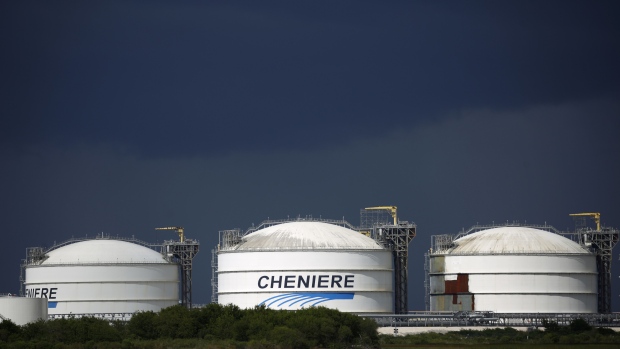Jul 12, 2022
Cheniere Warns EPA Rules May Disrupt Gas Supply to Europe
, Bloomberg News

(Bloomberg) -- Cheniere Energy Inc., the largest LNG exporter in the US, is among companies warning that new federal air pollution requirements threaten to disrupt gas supply to Europe.
Scores of US petrochemical plants, pipelines and other facilities will have to prove they’ve complied with Environmental Protection Agency limits on cancer-causing formaldehyde emissions by Sept. 5.
“The rule would have implications across the domestic energy sector and particularly in the LNG industry at a time when Russia’s invasion of Ukraine has shaken global energy markets,” Cheniere’s law firm said in a March 8 letter to EPA Administrator Michael Regan. The company’s warning, just released as part of an open records request, was first reported by Reuters.
The issue presents a test for President Joe Biden, who has struggled to balance environmental protection with global fuel shortages that have juiced energy prices and stoked inflation. While analysts say the new rules are unlikely to stem energy flows, Cheniere and others are using Russia’s invasion of Ukraine to argue for exemptions from, or delays to, the EPA limits.
“Potentially imposing significant costs and operational disruption on the US LNG industry at the same time the administration is focused on Europe’s strategic need to break its reliance on Russian gas is counterproductive,” Cheniere said in the letter.
Agency officials have spoken with representatives of Cheniere and other companies concerned about the looming deadline, according to newly released records. Industry representatives have said they don’t have time to retrofit equipment before the deadline and have warned about implications for global energy flows, according to people familiar with the matter who asked not to be named describing private discussions.
Pipeline operators The Williams Companies Inc. and TransCanada Pipeline USA Ltd. are separately challenging the requirements before the Washington, D.C.-based US Circuit Court of Appeals.
The emissions curbs could affect impact 220 combustion turbines deployed across the US, according to an EPA database. For nearly two decades, the devices -- known as lean premix and diffusion flame gas-fired turbines -- were waived from certain national emissions limits, but in March the EPA said it was lifting the exemption. The agency gave companies 180 days to prove they’re complying. In some cases companies could be forced to install pollution-control equipment or replace the turbines with electric units.
“It would seem very difficult that anybody would be able to put in controls, if they don’t have them, in such a small amount of time,” said Makram Jaber, a partner at McGuireWoods LLP.
The EPA is still reviewing Cheniere’s requests for an exemption or delayed enforcement, the agency said in a statement. Representatives of some companies that operate potentially affected turbines, including Duke Energy Corp., did not respond to requests for comment. Power generator NextEra Energy Inc. said it intends to be fully compliant with required testing to meet the deadline “and will evaluate any need for additional pollution controls should they be necessary.” A spokesperson for pipeline operator Williams Co. said it is performing testing to demonstrate compliance and anticipates its affected turbines are meeting applicable limits.
There are 62 affected turbines at Cheniere’s two Gulf Coast LNG terminals, where the equipment drives compressors to super chill natural gas for overseas transport.
“We are approaching this with EPA in a factual and science-based way and have expressed our concerns with them on the rule in that manner,” Cheniere spokesman Eben Burnham-Snyder said by email. “We are confident that an acceptable path forward can be found on this issue.”
In its March notice, the EPA said if companies can’t meet the requirements, the agency will determine an appropriate response, in part based on companies’ “good faith efforts” to comply. Environmental lawyers and energy analysts stressed the agency has discretion in how it enforces the requirements.
“There is enough flexibility under the statute and under the current regulations that instead of giving it up proactively, they’re holding industry’s feet to the fire,” said ClearView Energy Partners LLC Managing Director Christi Tezak.
©2022 Bloomberg L.P.








